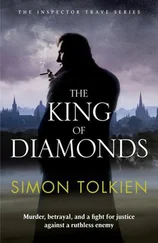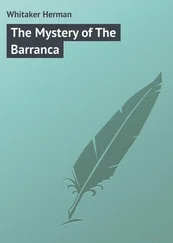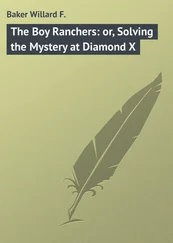It was seven months since I had set foot in that warehouse, and walked its dim passages between the shadowed mounds of barrels and crates that could contain any merchandise on earth. Here, in the years of my childhood, I had explored along with the other two members of our band. We used to prowl through those mountainous landscapes in the dusty light from the few smoke-blackened windows high above, looking out always for new discoveries. There was John Lazar, bold and fast-talking, big for his age, and my rival for leadership of the group; and there was Thomas, my brother. Thomas was slender, fond of his books, but for all that ingenious in dreaming up exploits. He was never daunted by a wall that had to be climbed or a stretch of riverwater to be jumped. In our hands we carried nails, sticks, even a length of iron bar. We tapped the barrels and prised up the lids. Inside, when we were lucky, we found sweet green mastic soaked in rosewater, and dipped our fingers in for a taste: forbidden fruit from savage lands. There was Baltic amber that gleamed with its dull, orange fire; crates of Turkish knifeblades; pungent cinnamon or peppercorns; oiled canvas packages that hid shimmering rugs and damasks woven with swirling figures.
Outside, before the grey timber front of our warehouse, the stink of the river hung in the air. Water lapped the green-scummed stones where two or three lighters always nudged against the wharf, their single sails furled. This had been my world, the world of Queenhythe Ward. East and west it stretched, the length of Thames Street, from the greasy stink of the cookshops beneath the sign of King David’s Head and the Old Swan brewhouse, all the way west to Saint Peter’s Parva and the Blue Boar, under the shadow of Saint Paul’s. Within these bounds our band of three ran and fought and explored. The streets, unpaved, stank with refuse and the night soil emptied from jutting windows overhead. Gutters ran gurgling down the street edges to discharge their effluent into the Thames, while waterwheels drove bosses, engines that sucked the riverwater back up again and drove it along lead pipes into cisterns scattered along the streets. Into these the serving maids daily dipped their pails to carry into the houses; so that, in my father’s phrase, we drank what we pissed just as surely as we pissed what we drank.
‘It is a proud name to bear, “Merchant of Queenhythe”,’ my father used to say, and for much of my life I had believed him. We who were born on Thames Street were suspicious of all those foreigners west beyond Lambert Hill, or east of Towne’s End Lane. The ward was a town of its own within the City. It elected an alderman, it had its own Council of Six and its Wardmote Court, nine constables and a beadle, and eight scavengers who slept in the day and prowled the streets at night, shovelling up the multifarious filth of the city and carrying it away into the country, where we imagined it was sold for a great price. There was Five Foot Lane, the narrowest in London; the tumbledown church of Holy Trinity propped up with great oak beams, which I climbed once to the level of its broken eaves, and dared John to follow; there were the poor houses of the packhorsemen and dock hands, and grand hostels with courtyards belonging to the nobles, through whose windows we peered eagerly.
At the heart of the ward was Queenhythe itself, a bay hollowed out of the riverbank between the warehouses, some hundred and twenty feet across. The old people remembered when this had been the grandest of the London wharves, but only barges and small boats could put in here now, thanks to the decay of London Bridge: its drawbridge had grown stiff with age, and would no longer let the great ships through. Even so, the Hythe was a fair sight, when the tide was full and the lighters came upstream and put in, dozens at a time. There was a customs house, with a bailiff who stood before it with his thumbs in his belt. The lighters landed rye and coal, fresh-caught herrings and sprats, eels and mackerel, as well as salt cod, and the dried stockfish that came in from Norway, stiff as a board, which was our fare in the winter. We used to sit on the stones at the waterside, John, Thomas and I, and watch the bakers and brewers come down to buy their wheat and barley. We saw the loads of fish being winched up and weighed by a thin, pale official known as the Meter. After that, the eight master porters took charge, each with his three under-porters. They loaded their packhorses with seven sacks apiece and set off up the steep, winding ways bound for the various fish markets, by Bread Street Hill and Spooner’s Lane; and, aptest name of all, when the packbeasts stuck in the narrows between jutting house-timbers, Labour-in-Vain Hill.
West of Queenhythe was the Salt Wharf, and then the bath-house on Stew Lane. Those steamy rooms beneath the brick chimney were about much more than getting clean. Women lived in the house, whores, and on misty nights we could hear their laughter carrying as far as home. Sodom on the Thames, my mother called it, and forbade Thomas and me ever to go near. But curiosity tugged at me, and I knew that one day I must step inside. Beyond Stew Lane was Timber Hythe, where John’s father kept his warehouse. We stopped here sometimes to watch the cargoes being unloaded: Dutch wainscot and deals, and clapboards, riven oak lengths that would go to make barrel staves. John did not like to stay here too long. He was ashamed of his father’s dull trade: he was restless, hungry for new worlds, just like all of us.
Next along was our own domain of Broken Wharf. Fallen stones spilled into the water from the crumbling steps; the lime peeling from between the ancient paving threatened always a fresh landslide. The firm of Dansey had taken the lease on this wharf at first because it was cheap. Then my father, Roger Dansey, had bought the warehouse and the dwelling beyond it, and we became fixed there. We had built a new oak pier, but it remained a treacherous landing-place, and around the dark pilings river currents swirled uneasily. Here, very often, our band made its camp. We used to perch on the stone edge of the quay with our legs dangling over the water, watching the boats and the men about their business, while we debated our next venture.
‘Who has the courage to swim out to the mill?’ asked John. He nodded his head to the pair of barges wedged between pilings out in the river, with a waterwheel secured between, perpetually turning with a dull grind and splash. To swim out there at anything other than a slack tide was death. We had done it, John and I, three times already, each challenging the other, and I would have done it again at any moment, even with the tide running, if John thought he dared it and I did not. But Thomas said, ‘And what would I do, while you risked your necks? “Who has the courage?”’ he mimicked John’s voice. ‘We’ve all proved that we can do it. No, let it be Terra Incognita.’
He meant the old abandoned warehouse just upriver from ours. Its grand stone frontage proclaimed that in centuries past it had been the house of a noble, before the relentless tides and currents had eaten at its foundations and driven cracks up into the stonework. Even so, some time in the last century someone had dared to erect a wooden warehouse here. Tall and crooked it stood, rearing up from the ruined old mansion, its head tilting over the river like an old man about to fall.
Thomas was the one who first succeeded in picking the lock. He stood lookout, while John and I squeezed through the doorway into the forgotten stone court, daring one another to leap between the broken arches where the paving had cracked and dropped into dark abysses below. Did we dare go down? We dared. One by one we descended into the dripping cellars, waist-deep in water, rich with the stink of the Thames. Here were slimy caverns and cracked old wine casks, and the shipwreck of a lighter, its rotted timbers glistening with damp. But the real delight of the place was not underground. I found the way up by many a creaking ladder to the attics, where a wooden gantry opened out over the river, far, far below. With a little care and daring I inched out along the timbers and round to the eaves, and so crawled up over the tiles, with a thirty-foot drop beneath, to the roof-ridge itself. John followed, and then Thomas.
Читать дальше












